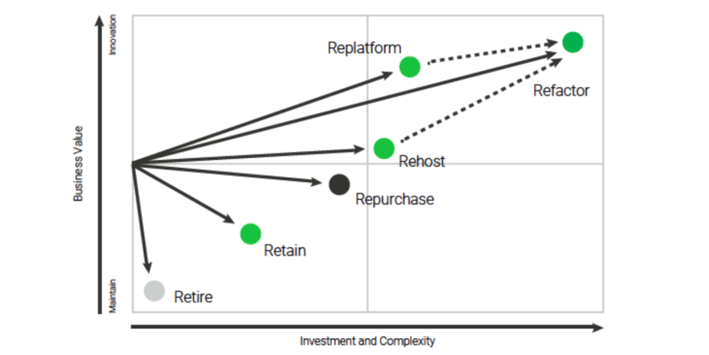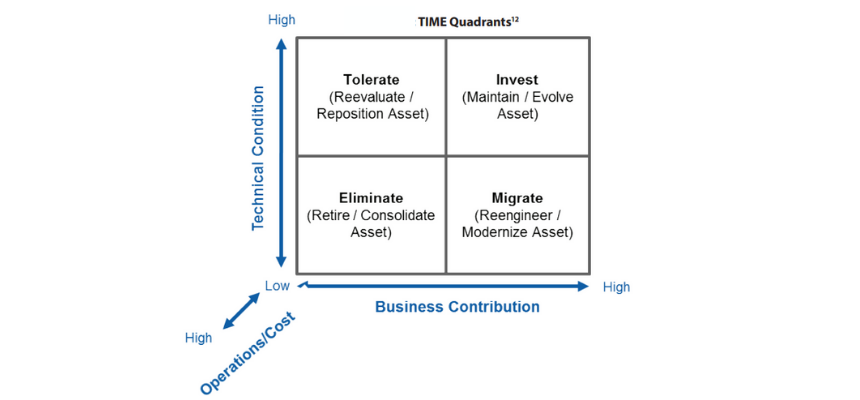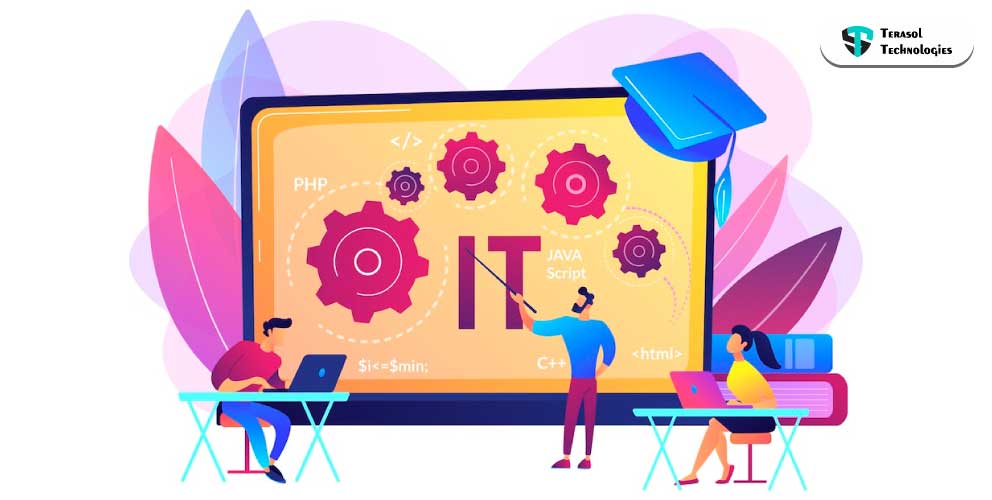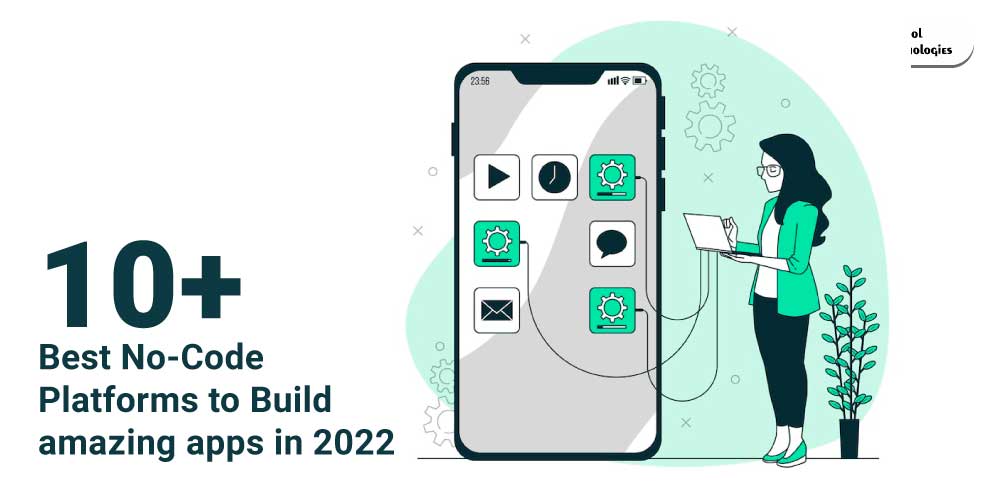7 Options to Modernize Legacy Applications for Future
The optimal technique for modernizing outdated apps is determined by the problem you're seeking to solve.
"The idea is to establish whether the traditional platform is helping or preventing the organization from accomplishing its goals," Gartner says.
Let's see the options available to modernize legacy applications to help your business grow effectively and efficiently.
Gartner's model to modernize legacy application
The Gartner three-step review procedure might help you figure out how to modernize legacy applications.
Step 1: Assess legacy systems based on six drivers.
Application modernization is driven by six key factors. Consider the following factors while deciding whether or not to modernize:
- Business Fit: Consider how your present IT environment aligns with your organization's vision, market needs, and the competitive strength it provides.
- Business value: The worth of a company. What added value are you delivering in the short and long term by investing in new technologies?
- Business Agility: Business agility should be a fundamental criterion for evaluating existing technology in the software age.
- Complexity: Migrating to new technologies can be extremely challenging, increasing the cost of change.
- Risk: Compare and contrast the risks and benefits of new technology investments. Technical obstacles, cost, and soft factors are all possible dangers.
- Cost: Consider the operating expenses, capital expenditures, technical debt, and total cost of ownership of your digital transformation and application modernization projects.
Modernization options with numerous drivers from both a business and an IT standpoint are the best.
STEP 2: Determine whether or not modernization is necessary.
Examine possibilities to modernize legacy applications once the opportunity has been chosen and the problem has been recognized.

Encapsulate the application's data and functionalities and make them available as services via an API to leverage and enhance its functionality.
Benefits: Migrate from monolithic to microservice architecture gradually. Make modular programming possible and debugging easier.
2. Rehost:Re-deploy the application component to a different infrastructure (physical, virtual, or cloud) without changing the code, features, or functions.
Benefits: Minimal or no changes to the application. For a complicated project, a simple transfer is required. Excellent security and regulatory compliance management.
3. Re-platformMigrate to a new runtime platform with minor code modifications, but no changes to the code structure, features, or functions.
Benefits: Reduce the amount of time spent on application management. Reduce security risks by automating tasks (patching, maintenance, etc.).
4. RefactorTo eliminate technical debt and improve nonfunctional qualities, restructure and optimize current code.
Benefits: Scaling applications in a cost-effective, resource, speed, and maintenance-friendly manner. Code portability is simple. Improve developer productivity and service frequency.
5. RearchitectChange the code in a significant way to adapt it to new application architecture and take advantage of new and improved features. For example, micro-services and PaaS.
Benefits: Improve the product's agility, flexibility, and capacities. The mixed technology stack is being implemented.
6. Rebuild:Redesign or redesign the application component from the ground up, keeping the scope and specifications in mind.
Benefits: Improve the product's agility and flexibility. Continuity of operations should be improved.
7. Replace:Replace the old application component with a new one, taking into account new requirements and needs at the same time.
Benefits: Cost-effective scaling of apps (resource, speed, maintenance).
STEP 3: Select the most effective and valuable modernization strategy
Finally, map the seven alternatives to modernize legacy applications in terms of their impact on technology, architecture, functionality, cost, and risk to determine which modernization method will have the greatest impact and value for your firm.
So, there are three options for upgrading historical applications: rearchitecting, rebuilding, or replacing.
To know which is the best option for your business system software, contact our experts and book a call now.
Pro Tip: Use Gartner’s TIME framework to Prioritize What is important
It's time to prioritize after you've found and gathered information on a number of potential legacy technologies.

The Tolerate-Invest-Migrate-Eliminate (TIME) framework, developed by Gartner, assists businesses in developing a clear transformation strategy and examining possibilities from a larger organizational perspective.
The Key Takeaways:
Most firms today must modernize legacy applications for their business. The key to modernization is to analyze all possibilities to see how much of each will have the desired result — with the least amount of effort and the greatest beneficial impact. But because legacy modernization is difficult and expensive, it is fiercely avoided.
However, when the time comes, selecting the correct method and partner will help the transfer from old school to the new world go more quickly and smoothly.
Allow us to provide you with the most appropriate option for your legacy system modernization. Let’s Start a new project together, contact us now.


